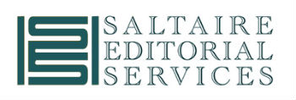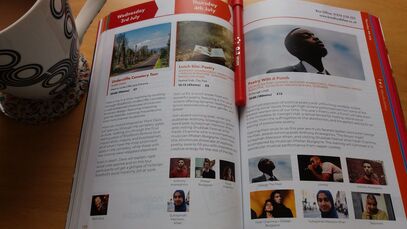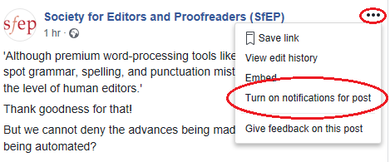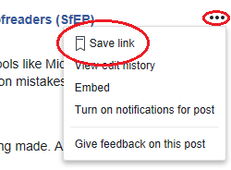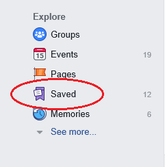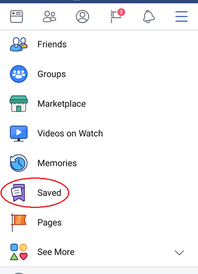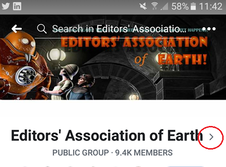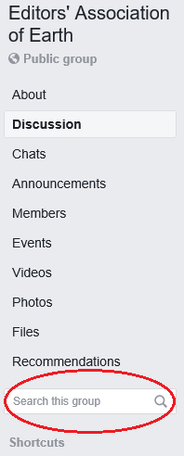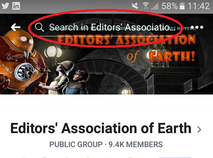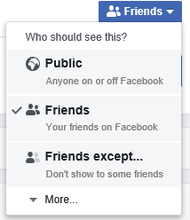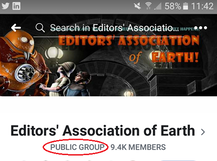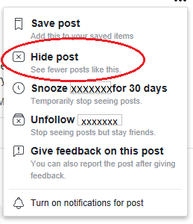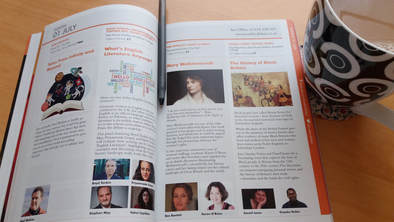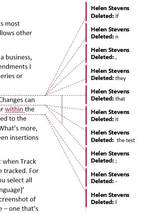|
Do you love figures, calculations and graphs? Or would you rather avoid numbers if at all possible? If you’re an editor or proofreader who routinely works on mathematics or science material, you’ll be used to dealing with figures, percentages, tables and graphs. But even editors who work on other texts (academic, business, and even fiction) will sometimes need to handle numbers and data. Perhaps you’re editing a survey report, a paper containing the results of a research study, or an organisation’s annual report. Even if the client isn’t expecting you to perform an in-depth analysis of their calculations and data presentation (and you feel it’s out of your area of expertise – or your comfort zone), there are some straightforward things you can look out for to help your author keep their data in line. Most of what follows is based on my own experience, so it isn’t intended to be an exhaustive list of issues. But I hope it will reassure you that checking figures and data presentation doesn’t necessarily require you to have a PhD in mathematics. Your basic editing and proofreading skills – together with a bit of logic and common sense – can often help you to spot when something’s amiss. 1. Words or figures in the text?This issue will be familiar to most editors and proofreaders. When writing a number, should it be ‘five’ or ‘5’, for example? What about ‘twenty’ or ‘20’? ‘Three hundred and forty-nine’ or ‘349’? This will often be covered in your client’s style guide. A common convention is for numbers below 10 to be written as words, and 10 and above to be written as figures. But this can vary, so it’s worth checking. In some (though not all) conventions, numbers within the same sentence should be made consistent:
In formal writing, it’s preferable to avoid starting a sentence with a figure. This might simply mean using words instead:
Alternatively – and particularly if the number is a large one, or it isn’t a whole number – it’s better to reword the sentence.
If you’re editing fiction, conventions might be slightly different. For example, numbers are often expressed in words when they appear in dialogue. 2. Talking about numbers in the text There are various ways in which statistics can be unintentionally misreported in the text. As an example, let’s look at two statements.
It’s easy to see how the confusion arises: the sentences contain the same words – just in a slightly different order. In some cases – like this one – it’s obvious that one of these sentences is incorrect, purely on the basis of general knowledge. In other cases, such inaccuracies are more difficult to spot without checking elsewhere in the document. Other things to look out for in the text include:
3. Consistency and common sense In the same way that you’d proofread names, punctuation and capitalisation of words and phrases, you should be on the lookout for obvious errors and inconsistencies in numerical content. For example, when numbers are mentioned in more than one place (in a table, in the text, in the introduction, on a graph), are they consistent? Are the correct signs used (+, −)? Similarly, in the same way that you’d use your own knowledge to spot errors when proofreading a general piece of text, you can sometimes see clearly that a mistake has been made. If an author claims that the population of London is 8,787 or 8.7 billion, you’ll probably realise that there’s something wrong. In a school report I was proofreading, I noticed that a student was congratulated on achieving 1.25 cm in the high jump, which conjured up an amusing – though misleading – image. 4. A note about averagesRemember when Michael Gove, the then UK Secretary of State for Education, stated that he wanted all schools to be performing above the national average? Think about it. If all schools are above the national average, that is no longer the average. As proofreaders and editors, we need to have some level of understanding of basic mathematical terminology – or at least, of words and concepts that are in everyday use – so that we can at least raise a query if something doesn’t look right. 5. Problems with percentages An awareness of what percentages mean can help you to spot errors and problems. Even if you’re not going to be checking an author’s calculations, it does help to know that 50% is half of something, 33% around a third, and so on. So if an author claims that 24 of the 47 people in a survey are men, and that this proportion is 25% (i.e. a quarter), it’s something you need to query. As well as basic calculation mistakes, it’s worth being on the lookout for inaccurate descriptions of percentages. I’ve seen ‘majority’ used to mean ‘the largest proportion’. Here’s an example:
This does not mean that ‘the majority of people are employed’ – ‘majority’ means ‘most’ (i.e. more than 50%), rather than simply the largest group. Another thing to check is whether the percentages add up to 100. But beware – that might not always be appropriate. For example, if reporting on answers to a survey question where people could tick more than one option, the total could well be more than 100%. In this example, it’s clear that some people like both apples and bananas:
In cases like this, the percentages won’t necessarily add up to 100. A more subtle issue when it comes to percentage is whether the author really does mean ‘per cent’ (%), or whether they mean ‘percentage points’. As an example, if the unemployment rate in 2001 was 5% and the unemployment rate in 2011 was 10%, the correct way to describe this would be to say that the 2011 rate is 5 percentage points higher than the 2001 rate. The unemployment rate is definitely not 5% higher (in fact, it is 100% higher!). 6. Calculation check Even if the client isn’t expecting you to check all the calculations – some of which might be pretty complicated – there’s no reason you shouldn’t check straightforward sums. Adding up a column of numbers in a table can sometimes reveal some surprising errors, or issues that at least need to be queried. It can be handy to use Excel to check figures: simply cut and paste your column(s) of numbers into a blank spreadsheet and use the SUM function (∑ from the ribbon on the Home or Formulas tab). You can also use Excel to perform other straightforward calculations (%, −, ×, ÷). Even if you don’t routinely use Excel, it’s worth familiarising yourself with the basic functions and with how to create a simple formula. Of course, you can always check figures using pen and paper or a calculator, but Excel can save you quite a bit of time (and – if used with care – can reduce the risk that you’ll make errors in your own calculations). 7. Equations If mathematics isn’t your thing, it’s possible that your eyes glaze over when you see any type of equation. But even if you’re not expected to proofread equations in the text, you can use your existing skills to spot obvious errors. For example, you might notice a term in the equation that’s different from those mentioned in the text. There might be a reason for this, but it could be a typo, so it’s worth a query to the author. Look out, too, for equations that the author has copied and pasted (to save retyping) with the intention of putting in different figures or other terms. Has the author remembered to update all the details? 8. Number ranges I occasionally come across a table or chart in which the number ranges look something like this:
This is a problem because the ranges don’t have clear upper and lower limits: they overlap. For example, in which category would a value of ‘20’ be placed? Only the originator of the data would know the answer, so there’s usually very little that the editor or proofreader can do to correct this, other than query it. Ideally, ranges should look like this:
Or like this:
And if the data includes values that are not whole numbers (e.g. 2.8, 19.99, etc.), the ranges will need to be more exact:
9. Units, decimal separators and thousands separators Again, consistency is the key here, as well as sticking to the style requirements. a) Units
b) Decimal separators In UK and US English, a full stop (full point) is usually used to separate whole numbers from decimals. The decimal point is usually on the baseline of the text, but sometimes a middle dot is used (e.g. 34·12). And in some countries a comma is used as a decimal separator. I’ve come across this most often in work by European authors, but the convention is also followed elsewhere. c) Thousands separators Similarly, there are different conventions for separating groups of digits in larger numbers. In many cases a comma is used (10,000), but some styles call for a non-breaking space (10 000). 10. Checking charts Whole books have been written about the best way to present data in graphs, charts and diagrams, and the mistakes that can be made in data visualisation. Here, I’m just going to highlight some of the issues that I’ve come across when editing material containing such features. a) A suitable style Does the chart present the data clearly and unambiguously? For example, pie charts are often not a good way of presenting data, as this article explains. When checking a chart, graph or diagram, you need to ask whether it makes sense. Can you think of a clearer or better way of presenting the data? b) Gimmicks It’s tempting to use colours and special effects to make a chart, graph or diagram more eye-catching and ‘interesting’. However, that’s often not necessary (unless such effects are part of house style or branding). Bear in mind that colours, shapes and fancy shading can be distracting and confusing for the reader. In any case, such effects will often be stripped out at the next stage of the publication process. c) Axes As a rule, these should always start at zero. In this example, the chart on the right seems to be suggesting that The Times newspaper has twice as many sales as the Daily Telegraph, but that’s simply because the vertical axis starts at 420,000 rather than at zero. Results can easily be distorted if the chart isn’t showing the full picture. d) When charts go wrong Special mention must be made of this chart, which shows the average female height in various countries. It’s misleading in a couple of important ways:
11. Tables You first need to consider whether the table is suitable for the type of document (e.g. an academic paper vs. a brochure aimed at the general public) and whether it presents the data clearly. When it comes to checking the details within a table, the advice I’ve already mentioned is relevant. Use your proofreading skills to check whether figures are consistent with those mentioned in the text. Add up columns to check totals. Apply your common sense to make sure the data looks correct. It’s also worth checking the following specific points: a) Units Are the units clearly stated? For a table displaying only one type of data (e.g. percentages or monetary values), the units are sometimes included in the table caption: Table 1: Owner-occupiers as a proportion of the population, 1950–2017 (%) If the table shows different types of information, the units might be included with each value. So the columns will look something like this: Consider whether the table would be less cluttered if the units were added to the column headers and deleted from the data itself, as in this example: b) Order of information Check whether items are listed in a consistent way. For example, in the table above, the ‘countries’ are shown in alphabetical order. But the author could also have chosen to list them in ascending or descending order, by either the unemployment rate or the average income. Either of these alternatives would have been acceptable. However, if items are listed in apparently random or inconsistent order (e.g. in a series of tables), this might be confusing to the reader. c) Row and column headings Do these clearly explain the data in the table? If there’s more than one table with a similar layout, are the row and column headings presented in a consistent way? d) Table layout I recently came across a table similar to this one (I’ve only included part of the table, although the rest of it was similarly misleading). The author had tried to present information about the sample population, but the table was laid out in such a way that it implied an association between different variables. For example, it appeared that all the male participants are in the three younger age groups, and that all the female participants are in the older age groups. The way this table is laid out suggests connections between the different categories that don’t (in this case) exist. And – to illustrate a point made earlier – you might have noticed that the figures in the ‘Age’ categories add up to 104, rather than 100 (the total for the ‘Gender’ categories). Rather than presenting the information in this way, it would have been better to keep all the categories separate. This is the layout that I suggested to the author. This version is not as concise as the original, but at least it doesn’t suggest relationships that aren’t (necessarily) there. I hope this article has reassured you that your usual proofreading skills, together with a bit of common sense, will help you to check numerical information in a document, even if you don’t consider yourself a ‘numbers’ person. Here’s a summary of my top tips for approaching this type of work.
8 Comments
I’ve previously written about why I love this festival – and my feelings certainly haven’t changed! This year the programme is as strong as ever, and it continues to tick all the boxes as far as my admiration is concerned. So I thought I’d present an updated version of my previous article, featuring highlights from this year’s fantastic festival offerings. Bradford has had its fair share of bad publicity over the years, and it might not be the first place that springs to mind if you’re thinking of cultural events. But a few years ago, Bradford Literature Festival (BLF) burst onto the scene – and I love it! This year’s festival is fast approaching. Here’s why I’m looking forward to it. 1. Big namesFor such a young festival, BLF attracts some notable speakers. This year there’s George the Poet, AC Grayling, Michael Rosen, John Barnes, Luke Goss and Jeanette Winterson (to name but a few). In previous years I’ve been to events featuring Jeanette Winterson (she must like it here!), Akala, Carol Ann Duffy and Jackie Kay. And a couple of years ago I happened to fall into conversation with none other than Germaine Greer as she consumed a refreshing shandy before a panel event. The hot topic she chose? The traffic diversions and snarl-ups she’d encountered on her way home from an event the previous night. Not quite what I was expecting. 2. Professional interestAs an editor, I’ve loved being able to hear experts like linguist David Crystal and The Times columnist Oliver Kamm talking about language and usage. I’ve attended panel discussions on English as a global language, the author–editor relationship and how not to write bad sex. And at this year’s BLF there are sessions on cultural appropriation in writing, how to get published, crime writing and thrillers, how to make writing pay, and the power of podcasts. Professional development has rarely been this enjoyable. 3. VarietyI’m always impressed by the wide range of events at BLF. There’s classic literature and contemporary crime fiction, there’s poetry and rap, there’s magic and fairy tales, there’s feminism and religion, there’s music, comedy, film, politics, heritage tours, walks... And this year, there’s even an event devoted to tea! It’s a great opportunity to immerse yourself in something you love, or dip your toe into something new. Expect to laugh, cry, think, enjoy and relax, and to come away inspired, informed and challenged. What more could you ask for? 4. The local angleBradford has a rich literary and cultural heritage, and that plays a part in BLF. Inevitably, perhaps, the Brontës are often featured – and this year is no exception – but there’s always a real desire to explore their work in new and interesting ways. Other local talents also come under the spotlight. Once again, the work of Bradford playwright Andrea Dunbar (Rita, Sue and Bob Too) is considered, while Poet Laureate Simon Armitage – who hails from nearby Marsden – will discuss his new translation of Sir Gawain and the Green Knight. There’ll be discussions on topics that resonate in the city, including The Satanic Verses, Islamophobia and Bradford City AFC, and tours of Undercliffe Cemetery, the Jewish Quarter, Bradford Police Museum and Little Germany. It’s a great way to learn about the area’s history and find out more about some of the hot topics of the day. 5. InclusivitySay ‘literature festival’ and many people think it isn’t for them. But I’m sure at least some would reconsider if they took a look at the programme and tried out an event or two. There’s a great variety of stuff that’s designed to appeal to all age groups and to reflect Bradford’s diverse communities. Most events take place in or around the city centre, and some are free. And as well as the usual discounts for students, senior citizens and disabled people, there are special tickets for refugees, asylum seekers and benefit recipients (the cost of a ticket is refunded on attendance, which means free entry!). 6. Educational focusBradford has a chequered history when it comes to education, and many of its schools still struggle with literacy and educational attainment. I think BLF can only be a good thing in this respect. The programme’s chock-full of stuff for children and young people. There are plenty of free activities, including two Baby Raves, for which I’m considering borrowing a baby. And the festival has a great schools programme, which includes author events, performances, writing workshops, and author visits to schools. Oh, to be young again… 7. Celebrating what’s best about BradfordI think the fact that Bradford can put on a festival of such quality is a demonstration of what’s best about this vibrant city and its culture. During previous festivals I’ve spent time in the Festival Hub in City Park, and it’s a great place to hang out, grab a coffee and enjoy the buzz. I’ve been interested to see the inside of some of the city’s great buildings, such as City Hall and the Midland Hotel, and I can confirm that there’s more to Bradford than dark satanic mills and sink estates. And even if only a fraction of the city’s population comes to BLF events, many more – especially children and young people – will surely benefit from its effects. So, there it is. Once again, I can’t wait for BLF and for the chance to learn something new, be challenged and entertained, and perhaps even find out about visiting celebrities’ travel headaches. Bring it on!
Facebook has many helpful features – some obvious, some less so. Here are six tips to help you to make the most of your Facebook experience, whether you’re using it mainly for personal or for business purposes. I’ve given instructions for Facebook on a PC and an Android phone, but you should be able to find the same features on a Mac or an iPhone. And do bear in mind that Facebook changes from time to time, so these features might appear in a different place in future – or even disappear altogether! 1. Following a postIf you want to receive notifications when something’s been added to a post, Facebook has a useful feature that’s worth knowing about. In the top right-hand corner of each post there’s a drop-down menu (click on the three dots to reveal it). Simply choose ‘Turn on notifications for this post’. And if you want to turn off notifications, you can do that from the drop-down menu too. Of course, you should automatically receive a notification if you’ve already contributed to the thread. But there’s no need to type ‘Following’ or ‘F’ in the comments just to make that happen. Far better to turn on notifications from the menu so that you’re not cluttering the thread. Your friends and colleagues will thank you for it. 2. Saving a linkWe’ve all had the experience of seeing something on Facebook, thinking we’d go back later to read it, and then not being able to find it. The same drop-down menu you use to turn notifications on and off also has a ‘Save link’ option. Click on that and it’ll be saved for you, without you having to comment on the thread.
You can even organise the links into ‘Collections’ (e.g. work, health, music), making them even easier to find. 3. Sticking to group rulesFacebook groups are a great way to connect with others through shared interests. For example, many editors and proofreaders enjoy reading and taking part in discussions in the Editors’ Association of Earth public group and its associated closed groups. Before starting to post in a group – whatever type of group it is – it’s a good idea to read the rules. Many groups have guidelines on the types of posts allowed. For example, are you allowed to advertise (either your own products and services or those of someone else)? There are often other rules about what is and isn’t acceptable.
It’s important to follow all the guidelines. It makes the job of the group admin(s) so much easier, avoids wasting everyone’s time, and makes the group experience far more pleasant and productive for all users. If it’s a professional group – like the ones for editors and proofreaders, for example – following the rules helps you to maintain your professional image. And if you decide you don’t like a particular group’s rules, you can always start your own! 4. Searching in a group One useful aspect of Facebook groups is the search feature. This enables you to look for previous discussions on a particular topic so that you don’t run the risk of asking a question that’s already been answered.
5. Protecting your privacy One thing you need to be aware of when commenting on a Facebook thread – whether that’s on a friend’s timeline, on a page, or in a group – is the privacy settings.
This is where the privacy details appear on the group page on a phone: And on a PC: 6. Hiding posts Facebook’s algorithms are such that it’s difficult to control what you see in your newsfeed. But there’s one useful feature that does at least allow you to hide specific posts from friends, pages and groups if you’d rather not see them again (for whatever reason). When you see the post in your newsfeed, click on the three dots in the top right-hand corner of the post to find the same drop-down menu mentioned in Tip 2 above. Simply choose ‘Hide post’. You’ll notice that there are also options to ‘Snooze’ a particular person for 30 days, or ‘Unfollow’ them completely so that you won’t see their posts at all (but you’ll still be friends). Very handy! You’ll only see the full menu with this option if you click on the post in your newsfeed, rather than, for example, within a group, or on a page or a friend’s timeline. So there we are: six little tips that can make a big difference to your – and other people’s – experience of Facebook. I hope you find them useful!
Are you a natural diplomat? Or do you struggle to respond with sensitivity and tact, especially in stressful situations? And what does all this have to do with editing and proofreading? Diplomacy is never far from the headlines, whether it’s the Brexit negotiations, ceasefires in long-running armed conflicts, or international agreements on emissions targets. Even if negotiations don’t take place in the public eye, we know they’re happening and we can see the results (or lack thereof). Although such situations might seem rather remote from our daily lives, I think we probably all use more diplomacy on a day-to-day basis than we imagine. This was brought home to me recently by an incident involving a friend of mine (a fellow editor, although the situation wasn’t related to editing). This friend had managed to resolve a long-standing and seemingly intractable family problem by speaking separately, and with very well-chosen words, to each of the parties involved. The situation was quickly sorted out to everyone’s satisfaction. No one lost face, no one felt aggrieved, and no one was seen as ‘the bad guy’. I was seriously impressed with the way my friend had engineered this solution. It was pure genius! Now, I wouldn’t call myself a natural diplomat. Yorkshire folk have a reputation for plain speaking and bluntness, and that’s often not conducive to approaching situations in a calm, measured way. Add to that my tendency to try to make a joke out of everything and it’s safe to say that I’m not going to be leading international peace talks any time soon. But in the world of editing and proofreading – particularly the freelance variety – there are plenty of scenarios in which a pinch of diplomacy can go a long way.
Being a freelance editorial professional involves much more than the mechanics of editing and proofreading. As well as all the requirements of running a business – marketing, keeping on top of the accounts, planning and advertising, to name but a few – it involves building relationships. That’s where diplomacy comes in. It’s a question of taking a position, thinking about how rigidly you need to stick to it, considering the ramifications, and communicating effectively with others without causing offence or undermining your own position. Here are some common-sense tips.
Admittedly, these tips are unlikely to secure you a place at an international negotiation table, but you might find them useful in running your editorial business. And although diplomacy – like good editing – often goes unnoticed, your clients, colleagues and family members are still likely to appreciate it, and they’ll certainly notice if it’s absent!
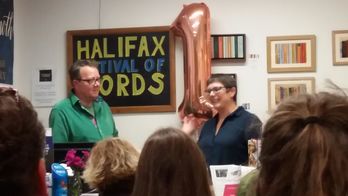 On a windy October night that was strangely warm for the time of year, the skies dark with the threat of rain, I made my way over the bleak Yorkshire hills to the magnificent, majestic Piece Hall in Halifax. (OK, I’ll stop that now. I’m an academic editor, not a fiction author.) I was going to an event entitled ‘How to Get Published Without an Agent or Travelling Down to London’, the venue was The Book Corner bookshop, and my companion was novelist and fiction editor Helena Fairfax. As an author, Helena had more of a vested interest in the topic than I had. But I’m always keen to support local publishing-related activities, and I welcome any excuse to visit the Piece Hall. The speakers at this event – part of Halifax Festival of Words – were Kevin and Hetha Duffy from Bluemoose Books in Hebden Bridge. They’re fierce supporters of the northern publishing scene and have invested a great deal, personally and professionally, in promoting literary fiction that mainstream UK publishers might not be willing to publish. Kevin and Hetha gave an entertaining round-up of the various options for getting published. The traditional route is through a literary agent, who then liaises with publishers in the hope of securing a deal for the author. We heard about some of the drawbacks of this system, the main one being the reluctance of larger publishers, who are focused on the profits they have to make for their shareholders, to take risks with work by new authors, particularly if that work is outside established genres or current literary trends. Submitting to a small independent publisher – Bluemoose, for example – is another option. Kevin and Hetha gave us a fascinating insight into their publishing process. They receive around five hundred submissions (of three chapters and a synopsis) every year, request full manuscripts for around five of these each month, and then eventually publish around three or four titles a year. They have to really fall in love with a manuscript if they’re to publish it (although they admitted that the two of them don’t always fall in love with the same things!). Kevin and Hetha described some of their publishing successes, including Benjamin Myers’ novel The Gallows Pole, for which Benjamin has won several literary prizes and a not inconsiderable amount of money. Benjamin’s publishing journey has not been an entirely smooth one, his second novel having been turned down by the large company that had published his first novel. Following the outstanding success of The Gallows Pole – his third novel – the rights to Ben’s backlist have now been bought by Bloomsbury. Kevin and Hetha clearly regard this as a vindication of their decision to support Benjamin’s work and of their approach to taking what other companies might see as a risk. What stood out for me was the emphasis placed on the editorial process. Hetha gave her two key tips for authors.
The company has a small team of editors, including Hetha’s mother, who go through a manuscript until they are absolutely satisfied that it is the best it can be. Editing is not an easy process, and some authors are uncomfortable with it, but Kevin and Hetha are so passionate about the books they publish that they are unwilling to compromise on this. And they’ve come to realise the importance of making it clear to authors from the outset that this is what will happen to their manuscript. Ultimately, if the Bluemoose team are not fully satisfied with the final version of a novel, they could take the decision not to publish. However, they were keen to stress that they would rather work with an author than battle it out over the quality (or otherwise) of individual sentences. There was a great deal more information here, including a description of other routes to publishing: self-publishing (which has massively increased in popularity in recent years), vanity publishing and print on demand. From its very humble beginnings in 2006, Bluemoose Books has become a force to be reckoned with – albeit still a small one – in the UK publishing industry. I get the impression they are less and less concerned with trying to compete with the (mainstream) London publishing scene: they clearly have their own fiercely independent vision of what they want to achieve. In fact, in recent times, mainstream agents and publishers have been approaching Bluemoose, rather than the other way around. This was a really lively and engaging talk, and a great thing to have as part of the Halifax Festival of Words. I’m sure those in the audience who are keen to have their work published will have found it very useful and picked up some valuable tips. I’m not an author, but I enjoyed Kevin and Hetha’s energy and enthusiasm, their drive to support publishing outside London, and – perhaps most of all – their endorsement of editing as the most important part of their publishing process. The life-changing magic of public speaking (and how that’s relevant to editing and proofreading)20/7/2018 For many editors and proofreaders, the natural reaction to the words ‘public speaking’ can be summed up as follows: ‘Aaaaaaaaaargghhhh!’ (Or is that just me?) Editing and proofreading tend to be rather solitary pursuits conducted behind closed doors, away from the public eye. For many freelancers, the need to speak in public doesn’t crop up regularly. In fact, sometimes there’s little need to speak at all in the course of a working day, especially now that online methods of communication are so widely used. And if a public speaking opportunity does occasionally present itself – the invitation to give a talk or deliver a session at a conference – there’s usually the option for the freelancer to say ‘no’ without jeopardising their core editing and proofreading business. So what on earth would possess a freelance editor to step outside their comfort zone and train in public speaking? At a recent meeting of our local Society for Editors and Proofreaders (SfEP) group, we heard from neuroscience editor Julia Slone-Murphy about ‘The life-changing magic of public speaking’. Julia described situations in the past when she had been obliged to speak in public: the sleepless nights beforehand, the sweaty palms, the racing heartrate, the typewritten script delivered rapidly and without looking at the audience… She recently decided to tackle her fear by taking some training. Stepping several miles outside her comfort zone, Julia signed for up both a stand-up comedy course and some training with the Public Speaking Academy. Here’s a summary of what she gained, followed by three top tips for public speaking.  Key benefits of public speaking training
Three Top Tips 1.Make it personal Your audience will be much more engaged in your speech if you remember to be yourself. Remember that we all have something different to say, and a unique way of saying it. Weave your own personal experiences and views into the message you’re conveying. Your audience is more likely to relate to your ‘story’, and your speech is more likely to be memorable and entertaining. 2.Focus on the message Rather than worrying about being the centre of attention during your speech, focus on delivering a message your audience will find interesting. That will move the spotlight away from you and onto your audience: it will help you to give a useful, generous and helpful talk, without worrying about what people are thinking about you. 3.Keep practising You need to find opportunities to carry on honing your skills and developing your techniques, otherwise you’ll be back to square one. Signing up for regular training is a good idea, as is saying ‘yes’ to as many speaking opportunities as possible! Julia has gained so much from the training that she encourages everyone to improve their public speaking skills, whether or not they’re planning to give a presentation or make a speech. Goodbye, sweaty palms and racing heartrate; hello, logical thinking, eloquent delivery and sparkling social and business encounters! Bradford has had its fair share of bad publicity over the years, and it might not be the first place that immediately springs to mind if you’re thinking of cultural events. But a few years ago, Bradford Literature Festival (BLF) burst onto the scene – and I love it! This year’s festival is fast approaching. Here’s why I’m looking forward to it. 1. Big names
For such a young festival, BLF attracts some notable speakers. This year there’s Akala, David Starkey, Suzy Quatro and Jeanette Winterson (to name but four). In previous years I’ve been to events featuring Will Self and Lemn Sissay. And at last year’s festival, I happened to fall into conversation with none other than Germaine Greer as she took refreshment in the bar before a panel event. The hot topic she chose? The traffic diversions and snarl-ups she’d encountered on her way home from an event the previous night. Not quite what I was expecting. 2. Professional interest As an editor, I’ve loved being able to hear experts like linguist David Crystal and The Times columnist Oliver Kamm talking about language and usage. I’ve attended panel discussions on English as a global language, getting published and how not to write bad sex. And at this year’s BLF I’m looking forward to hearing about the author–editor relationship, a subject close to my heart. I’ll also be finding out what’s in store for the publishing industry from some of those who are in the know: the editor of The Bookseller magazine and the cofounder of crowdfunding publisher Unbound. 3. Variety I’m always impressed by the wide range of events at BLF. There’s classic literature and contemporary crime fiction, there’s poetry and rap, there’s manga and magic, there’s Brexit and religion, there’s music, comedy, film, heritage tours, walks... It’s a great opportunity to immerse yourself in something you love, or dip your toe into something new. Expect to laugh, cry, think, enjoy and relax, and come away inspired, informed and challenged. What more could you ask for? 4. The local angle Bradford has a rich literary heritage, and that plays a part in BLF. Inevitably, perhaps, the Brontës are often featured – and this year is no exception – but there’s always a real desire to explore their work in new and interesting ways. Other local talents also come under the spotlight. Last year I enjoyed a fascinating discussion on the work of Bradford playwright Andrea Dunbar (of Rita, Sue and Bob Too fame), herself the subject of a novel by another Yorkshire writer, Adelle Stripe. The 2018 programme includes events on J.B. Priestley, Sylvia Plath and David Hockney, all of whom have local connections. And local publishers are often represented, both in panel discussions and through the authors they publish. It’s a great way to learn about the area’s history and discover new local talent. 5. Inclusivity Say ‘literature festival’ and many people would think it wasn’t for them. But I’m sure at least some would reconsider if they took a look at the programme and maybe tried out an event or two. There’s a great variety of stuff that’s designed to appeal to all age groups and to reflect Bradford’s diverse communities. Most events take place in or around the city centre, and some are free. And I’ve recently discovered that as well as the usual discounts for students, senior citizens and disabled people, there are special tickets for refugees, asylum seekers and benefit recipients (the cost of a ticket refunded on attendance = free entry!). 6. Educational focus Bradford has a chequered history when it comes to education, and many of its schools still struggle with literacy and educational attainment. I think BLF can only be a good thing in this respect. Apart from a programme that’s chock-full of stuff for children and young people – with plenty of free activities, including a Baby Rave, for which I’m considering borrowing a baby – BLF has a great schools programme, which includes author events, performances, writing workshops, and author visits to schools. I was really interested to hear about the school exchange with the long-established Hay Festival, and I’m so glad the students who took part enjoyed their visit. 7. Celebrating what’s best about Bradford I think the fact that Bradford can put on a festival of such quality is a demonstration of what’s best about this vibrant city and its culture. During previous festivals I’ve spent time in the Festival Hub in City Park, and it’s a great place to hang out, grab a coffee and enjoy the buzz. I’ve been interested to see the inside of some of the city’s great buildings, such as City Hall and the Midland Hotel, and I can confirm that there’s more to Bradford than riots, sink estates and dark satanic mills. And even if only a fraction of the city’s population comes to BLF events, many more – especially children and young people – will surely benefit from its effects. So, there it is. I can’t wait for BLF and for the chance to learn something new, be challenged and entertained, and perhaps even find out about visiting celebrities’ travel headaches. Bring it on! What gives you confidence? Have you thought about this question? Or are you too busy thinking about reasons not to be confident? Do you ever experience fear of failure, imposter syndrome or general insecurity (whether personal or professional)? If you’re a freelance editor or proofreader (in fact, a freelancer of any type), you often don’t have the same support networks as an employee working in-house. Isolation can erode your confidence and make it difficult for you to work effectively and grow your business. And it’s so easy to get stuck in a mindset where you’re focused on how your insecurity is holding you back, rather than on small steps you can take to recognise the successes you’ve achieved. I recently attended an event called Confidence Club. The main focus was on speaking in public, both in front of a roomful of people and in one-to-one networking situations. That’s a whole different ball-game, confidence-wise! But it did make me think about the confidence we need as freelance editors and proofreaders. Where does it come from? And is there anything we can do to give it a boost? I came to the conclusion that it is possible to find, increase and maintain your confidence, even when you’re working on your own for most of the time. And it’s not so much about stepping outside your comfort zone, as might be the case with public speaking, for example. It’s more about recognising and building on your achievements in the course of your everyday work. Here are 10 sources of confidence for freelancers.
1. Keeping your business going Whether you have a small number of jobs under your belt or you’ve been freelancing for decades, the fact that you’re running your own business is a real achievement. 2. Repeat business There’s nothing quite like the feeling you get when a client comes back for more. (“Yay! They were happy with my work!”) 3. Communication methods If you’re mainly communicating electronically, rather than on the phone or face to face, it’s less likely you’ll be put on the spot. You have time to plan your marketing messages, your emails and your social media output in a way that demonstrates confidence to your clients. 4. Feedback Comments from clients can give you a boost. And remember, you shouldn’t be afraid to ask for testimonials. 5. Getting paid There’s nothing quite like the (virtual) sound of cash hitting your bank account for a job you’ve done. It gives you confidence that you really are running a proper business. 6. Technical knowledge Confidence comes from having the right professional skills for editing and proofreading – and from knowing where to find things out if you’re unsure. 7. Using tools efficiently Finding a new software tool or using a new technique can be very satisfying. For a start, you’ve had the confidence to try something different, and it’s even better if you’ve also improved your efficiency. 8. Work/life balance Although in some ways it’s great to be inundated with work, it isn’t sustainable in the long term. And having too little work can be just as much of a problem. If you can find an appropriate balance between work and life – whatever’s right for your situation – you can count that as a success and feel confident that you’re in control. 9. Colleagues Being in touch with fellow professionals – whether online or in person – can help you to gain confidence in your business decisions and technical skills. Whether it’s sharing experiences (positive and negative), asking for advice, or even working together on joint projects, professional colleagues have a lot to offer. 10. Win Jar Some freelancers have embraced the idea of a Win Jar. It’s a place (actually, a jar!) where you can record your successes and positive feedback on pieces of paper and revisit them when you need a pick-me-up. However small the win, write it down and put it in the jar. So there we have it – 10 things that can give you confidence as a freelance editor and proofreader without you having to step too far outside your comfort zone. You can help some of them along: for example, joining the Society for Editors and Proofreaders (SfEP) is a great way to increase your knowledge (No. 5) and develop connections with others in the editing and proofreading sphere (No. 9). Some of these confidence boosters will evolve over time as you pursue your freelance business (Nos. 1, 2, 4 and 7, for instance). Your task is to notice and appreciate them as successes. And for No. 10 you’ll need to develop a new, positive habit – that of recording your wins. It’s also an excuse for a shopping trip to buy yourself a funky jar. Retail therapy, anyone? Microsoft Word is the standard software used for editing, and Track Changes is one of its most useful features: it shows amendments that have been made to a Word document and allows other people to accept or reject these changes. When I’m editing for a client – whether that’s an academic author, a government body, a business, an organisation, or an individual – my focus is on making it easy for them to see the amendments I have made to their material. Track Changes is the ideal way to do that. I can also add queries or explanations using the Comments function.
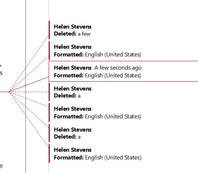 Track Changes: Language changes Track Changes: Language changes There are a few things an editor can do to make it easier for a client to read a document when Track Changes have been used. First, it’s worth considering whether every change needs to be tracked. For example, will the author need to know that you’ve changed the proofing language? If you select all the text and change the language with Track Changes on, this will add a ‘Formatted: [language]’ mark-up every time you make any sort of correction to the text from then on (see left). So you may decide to make this a ‘silent’ change – one that’s made with Track Changes turned off. Another correction that can usually be left untracked is changing double spaces (between words or sentences) to single spaces. The same goes for any unnecessary spaces that occur at the end of a line or paragraph, or within the cells of a table. Changes to the overall formatting – the font size, the line spacing, the paragraph style – are often best left untracked. If it’s important for the author to know that you’ve made any of these untracked changes, you can add a Comment at the start of the document or mention it in the covering email when you return the work. When it comes to sending the edited document back to the client, there are various steps you can take to help with readability and clarity. I usually send two versions of the document:
If the client wants to look at all my amendments – apart from the ones I’ve made ‘silently’ – the Tracked document gives them the full picture. The client can go through the document line by line and accept or reject each change at the touch of a button. The points raised in the Comments can also be considered along the way. Alternatively, if the client prefers to read the end result and is not overly concerned with each amendment, the Final version is available. The document can be read without the distraction of coloured lines and corrections, and the Comments are still visible, so any queries or explanations are there for the client to see. Rather than peruse the Final version, the client could, of course, simply use the Tracked version and choose to view the document with ‘No Markup’ (one of the viewing options on the Tracking section of the Review tab). This would look the same as the Final version and would enable the client to quickly view, accept or reject the corrections by toggling from ‘No Markup’ to ‘Full Markup’. But I’ve found that clients appreciate having the two different versions – one with changes showing and one with changes accepted – with the Comments visible on both. Track Changes is a useful feature, but there are so many options for how the mark-up appears (and which types of correction are visible) that it pays to keep things straightforward.
Something I heard on the radio recently made me think about how the language we use can signal a positive or negative approach to a particular topic. Following a programme dealing with new advice on healthy lifestyles, the announcer said, ‘Well, the news seems to be full of doom and gloom about diet and exercise, but let’s find out whether the weather is any more cheerful.’ The announcer’s comments automatically cast the advice on diet and exercise in a negative light. She could have used positive language (‘Well, after that great advice on maintaining a healthy lifestyle, how’s the weather looking?’), or even left things fairly neutral (‘Well, lots to think about there. Now let’s look at what the weather has in store.’). But the suggestion was that maintaining a healthy lifestyle necessarily involves a level of suffering and privation, rather than being an active choice to follow healthier habits. Now, I’m not saying it’s always easy to stay in an optimistic frame of mind – I do my fair share of grumbling and catastrophising! But when it comes to editorial freelancing, there are definitely ways of seeing the positive side of situations. Here are a few examples. 1. Running a business To pick up the ‘healthy lifestyle’ theme, as freelancers we often need to take action to keep our businesses in a healthy condition. That sometimes means doing things outside our comfort zone – marketing and networking spring to mind here – or tackling tasks that seem boring or mundane, such as planning or accounts. Other activities might seem expensive or time-consuming (or both!): taking a training course, perhaps, or setting up a website. But turning this around, running and growing a business can be seen as a challenge, with rewards – both personal and financial – for those who do it successfully. Rather than viewing marketing, networking, planning and training as chores, perhaps we should try to approach them with enthusiasm. After all, just as with diet and exercise, we have a great deal of flexibility in the choices we make and in the way we pursue them. And as with diet and exercise, optimism, imagination and the willingness to put in some effort will usually pay dividends. 2. Losing a client All businesses have their ups and downs, and losing a regular client can feel like a devastating blow. Sometimes it’s out of our control, such as when an organisation takes the work in-house or overseas. Sometimes it’s a matter of money – the client is no longer able or willing to pay our rates – or a mismatch in expectations about scope of work or turnaround times. Whatever the cause, replacing the lost income is likely to be a priority, especially if the shortfall means a struggle to pay bills. It can be a surprise to realise that losing a client can have a positive side. Sometimes it’s tempting to stick with one type of client, with a particular fee level, or with specific working arrangements. Losing a client can give us the opportunity to reassess our situation and ask some fundamental questions. Is it time for a change of direction? Are there new types of client, or new types of work, that we’d like to pursue? Could this be an opportunity to raise our rates? Depending on the circumstances of the loss, it might also be a chance to assess what went ‘wrong’ (if anything), and whether there are things we can do to protect ourselves against this in the future. 3. Lifestyle Working as a freelance editor or proofreader has its own lifestyle challenges, and it’s important to take heed of the advice that’s available. Maintaining health and wellbeing involves – among other things – taking regular breaks from the screen, making an effort to get some fresh air and exercise, and thinking carefully about food and drink consumption. Rather than see these as tedious ‘rules’ that have to be followed, we need to see them as an investment in our physical and mental health, and, hence, the health of our business. We can enjoy time away from the screen, whether we’re doing something else that’s useful or taking time out to relax. Laura Ripper has some excellent suggestions on her blog. Fresh air and exercise have obvious physical benefits, and they also offer a chance to think – or to switch off completely if that’s what’s needed. And our choice of food and drink can have an immediate effect on productivity – who can edit efficiently after a carb-heavy lunch? 4. A ‘can do’ attitude Of course, it’s important to be clear – to ourselves as well as to our clients – about how much we’ll charge for a particular piece of work, and when we can complete it. And if a client’s demands seem unreasonable, or they simply can’t be accommodated, there’s nothing wrong with saying ‘no’ to a project. But if the work looks interesting and there’s some flexibility in what can be done, we can sometimes present a positive alternative. We can discuss with the client what we can do within an agreed budget – for example, edit the language but not format the references. Similarly, clients are sometimes willing to wait until there’s a suitable gap in our schedule: rather than saying ‘No, I definitely can’t do it this week’, try saying ‘I could certainly fit this in next week. Would that work for you?’ 5. Approaching our work It’s worth thinking about the ethos of our editing and proofreading services. Is it helpful to tackle our work with a sense of superiority? Should we see ourselves as ‘Grammar Nazis’ who are driven by the desire to find mistakes in other people’s writing? It’s all too easy to become disillusioned when we’re editing and proofreading. Surely everyone should know how to use an apostrophe! And why, oh why do some people still put two spaces after every full stop? It sometimes helps to think about things from the other side of the fence. An author has put in time and effort to produce a piece of writing (which is not an easy task), and it’s our job to make it the best it can be. Yes, it sometimes seems like an uphill struggle, and we might feel as though our work goes unnoticed. But we should feel confident in our skills and expertise, and take pride in our own contribution to whatever project we’re tackling. There’s a lot to be said for being an unsung hero! As I say, I don’t see the world through rose-tinted spectacles, and I’m not suggesting that anyone else should, either. But I certainly think it’s worth considering both sides of any situation and trying to appreciate the benefits as well as the drawbacks. Freelance editing and proofreading can be a rocky path, so it’s essential to make the most of the positives (of which there are many!).
|
Categories
All
Archives
December 2022
|
Read my Privacy policy
